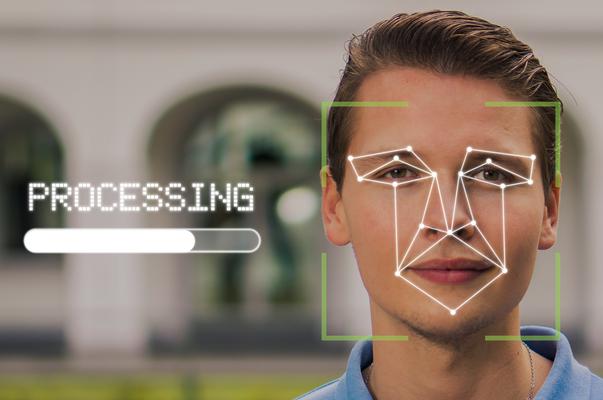Facial recognition, a new target for scammers
Facial recognition systems are invading our daily lives. They are found to unlock your smartphone, validate a payment or cross a border. In the United States, a country that is very advanced in the field, many public services, such as the one that manages unemployment benefits, even use it to identify applicants for assistance. But according to identity verification company ID. me, more than 80,000 fraud attempts were recorded on American territory between June 2020 and January 2021.
Artificial intelligence at the heart of technology
Along with the analysis of personal data, facial recognition in the service of identifying people is the most common use of artificial intelligence . The principle is quite simple. An algorithm models a person's face to pick up unique points and draw a facial imprint, like a fingerprint.
Once this composite portrait is registered, simply scan an individual again and compare their digital face to those present in the system's database. For the moment, the recognition of an isolated person is more reliable than when the face is in a crowd, but technology is advancing rapidly and mass identification is advancing, especially in China.
Creation and identity theft
Alas, these new systems attract scammers. One of the most widespread frauds is that which consists of amalgamating different faces by combining the traits of many people, again using artificial intelligence. This practice is called “deepfake”. The idea is to create "Frankenstein faces", explains the company Experian in its report published in March 2021.

These computer security experts also believe that a new fraud is proliferating: that of synthetic false identity. This practice has long been used by militant activists against mass surveillance. These use asymmetrical make-ups in order to deceive the systems and not be recognized. Today, scammers use it to shape a new identity. It is also relatively easy to impersonate another individual in order to access their digital wallet or bank account, in order to enter hotels, business centers, offices or hospitals.
Systems that are too weak
According to a recent report from Adversa, a company specializing in securing AI, "any access control system that has replaced human agents with security cameras facial recognition is potentially at risk”. The flaws in facial recognition lie mainly in the robustness – or weakness – of the algorithms. Some are so insecure that they can be tricked into simply printing out the photo of the targeted person to use as a mask after cutting out the eyes. These systems, which can be found in particular on trading platforms, analyze the movement of the gaze to check whether they are indeed real people. By this method, Chinese crooks were able to deceive the tax authorities and embezzle 77 million dollars.
Thanks to its camera that projects more than 30,000 points to create a 3D map of a face, Apple's Face ID system remains the most robust according to scientists, but more advanced bypass techniques are circulating. Improving algorithms, by teaching them to recognize, for example, a false face, is costly and companies are reluctant to make the necessary updates. Amazon, Idemia, Thales and AnyVision thus sell their technology to companies around the world, but their services represent a significant item.
EconomyHow to lodge a complaint when you are the victim of a financial scam?EconomyHow to choose a reliable financial intermediary? 0 comment30shares
How to Get Free N95 Masks from the US Government
GO
Codeco of December 3, 2021: the new measures target schools, masks, events, but not the horeca
GO
Sunburn: how to make up for the damage? - Miss
GO
Beauty coaching: can I apply oil if I have oily skin?
GO